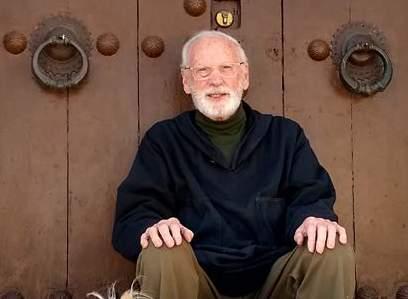
2 minute read
A Grumbling Vocation
by USPG
Rev’d Canon Huw Thomas MBE
Rev’d Canon Huw Thomas MBE Credit: Rev Huw Thomas
Ordained in Wales in 1965, I was a late-starter with USPG. I first worked in Lesotho (then Basutoland) and later in South-West Tanganyika. A kind of ‘grumbling vocation’ to work as a mission partner in other parts of the world church remained and I answered the call 30 years later, when I also encountered USPG. Now in extended locum as a priest in Algiers, I am blessed with a worshipping community (in French and English) of roughly a hundred souls, many from sub-Saharan Africa.
I discovered USPG to be far more than a sending agency, but truly a Society as its name declares. I privately consider USPG comparable to a religious order with its own particular charism. The ‘desk officers have always been supportive. By 2001, I was in Peshawar when the 9/11 tragic event threatened dire consequences for our close neighbour in Afghanistan. The decision to stay or return with other ex-pats was mine to make and I was assured of support and understanding, and I felt I ‘belonged’ to the Society in a special way. The huge 2005 earthquake - whose epicentre in Kashmir claimed over 80,000 lives and dispossessed and displaced 2 million people - also was hugely affecting. USPG’s Anglican ecclesiology insisted its member-mission partners’ responsibility and loyalty were first, under God, to the receiving diocese, its bishop and local church. This established one firmly as belonging to a specific part of the Communion whist there was still a vital support ‘at home’.
The Anglican family is rich in its variety of settings, cultures, traditions, language and colour, each with its own gifts to bring . There are religious orders and societies with their own distinctive charism. USPG has its honoured place among them. As we search and discover the gifts rather than the perceived deficiencies we might come a little nearer to what the P and G stands for - Partnership in the Gospel - and perhaps provide a model and pathway to healing for our divided Communion.

Appointed as chaplain in Addis Ababa within the jurisdiction of the Bishop and Diocese of Egypt, I was concerned with the tens of thousands of people from Sudan of whom most were to be found in the refugee camps in the Gambella region. On a visit at Easter time, I discovered the Christian community was flourishing, even without an ordained priest. They had built a church of mud and straw at the camp and I was privileged to baptize 151 people and celebrate the Eucharist there. Where language failed, water, wine and bread became the instruments whereby God touched us.
Time is too short to tell of Cairo, Peshawar, Algeria and other places where I discovered such amazing signs of God’s presence and blessing on other parts of our Anglican family. For now, may this reflection of twenty-five years of belonging to USPG be a tribute from an ever-grateful member, and serve to encourage and lift hearts to God.










